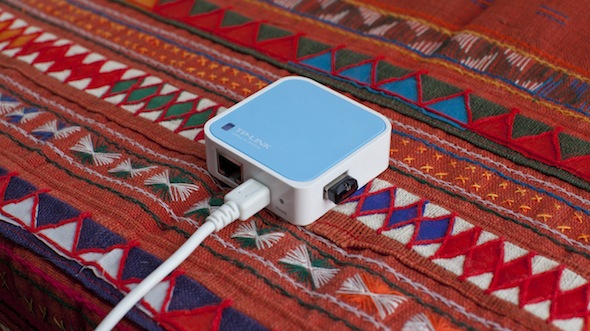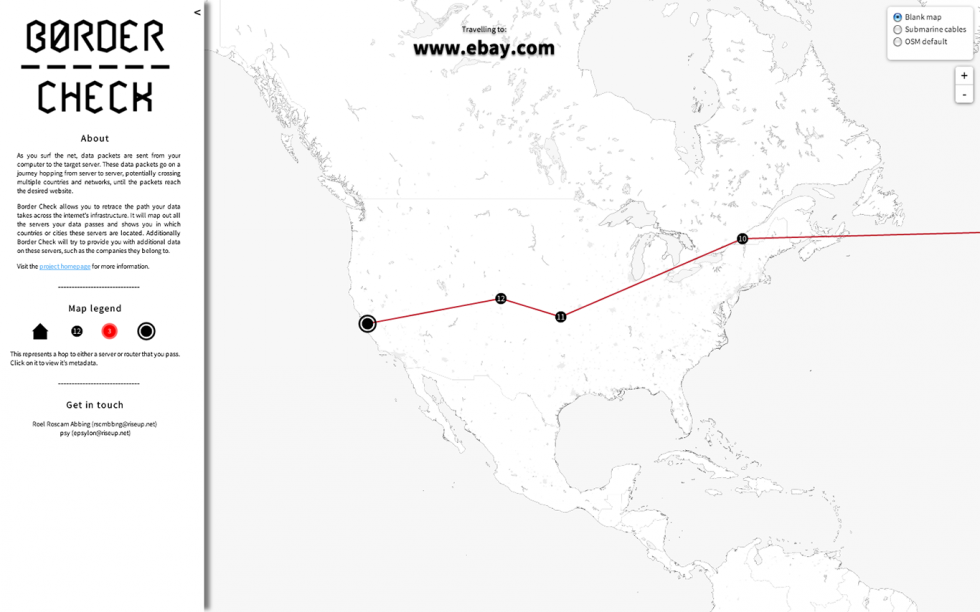A t-shirt by James Bridle:
Everybody’s talking about “the cloud”, as if it’s some magical faraway place, instead of a bloody great shed on an industrial estate. You should set them straight.
A joint design research project (HES-SO) between ECAL, HEAD, EPFL-ECAL Lab & EPFL
A t-shirt by James Bridle:
Everybody’s talking about “the cloud”, as if it’s some magical faraway place, instead of a bloody great shed on an industrial estate. You should set them straight.

This system isn’t connected to the cloud. Instead, the users represent a cloud of points and this local mobile network links them together. It’s a LAN party without the cables. Anyone within range of an Occupy.here wifi router, with a web-capable smartphone or laptop, can join the network “OCCUPY.HERE,” load the locally-hosted website http://occupy.here, and use the message board to connect with other users nearby. The open source forum software offers a simple, mobile-friendly interface where users can share messages and files.
–-
Via Rhizome

Border Check (BC) is a browser extension that maps how your data moves across the internet’s infrastructure while you surf the web. It will show you through which countries and networks you surf to illustrate the physical and political realities of the internet’s infrastructure using free software tools. Click here to see the video.
It’s as if the human-computer interaction community haven’t really addressed (yet) cloud computing, especially in the context of personal cloud services. An exception is this workshop called “Designing interaction for the cloud” organized by a team from Liverpool John Moores University. Their goal was to bring together researchers and practitioners from various fields and “examine the impact of cloud computing on the design of the user experience at the individual and organizational level”.
The workshop introductory paper highlights various research issues related to the following challenges:
- Design for a fragmented user experience
- Interoperability – goals and reality
- Personal clouds and multi-sensory environments
- The cloud in non-commercial application domains, e.g. medicine, education
- Privacy and trust as UX issues
- UI standards and processes in Cloud design
We are currently conducting a series of 10 semi-structured, open-ended interviews (based on the following interview guide. They last approximately an hour and are conducted in face-to-face or via Skype depending on the location of the participants.
In terms of sampling, we selected the interviewees on the following criteria: daily usage of cloud computing services, significant experience of nomadic work in the last three years minimum (independent worker, journalist, consultant), occupational practices which leads to intriguing digital practices (dealing with big files, collaboration over distance) and/or the use of third spaces (coworking spaces, fab labs, etc.). The reason why we chose this cohesive group of users is that the literature indicates a set of normative practices related to file storage and synchronization. Hence the need to go beyond this and understand less-described practices and approaches.
In order to conduct our field study, we defined the following interview guide. It will basically address the 3 main themes below and we expect the discussion to last approximately an hour.
1. Usage of Cloud Computing
2. Understanding of the cloud
3. Needs and expected improvements